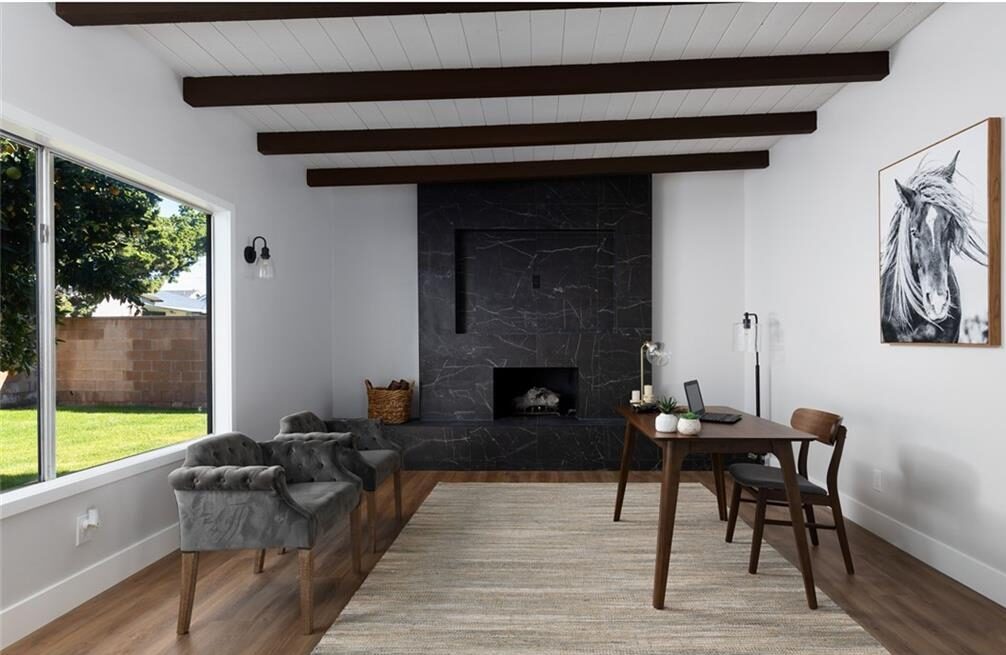Inpatient Anxiety
Treatment
Inpatient Anxiety
Treatment Program
At Renaissance Recovery, we are proud to offer inpatient mental health treatment for anxiety through dual-diagnosis addiction programs, and our inpatient mental health sister program, Connections.
For those who primarily need mental health treatment and not addiction, Connections Mental Health provides a comfortable, safe, and family-like environment where you or your loved one can receive evidence-based inpatient treatment for anxiety.
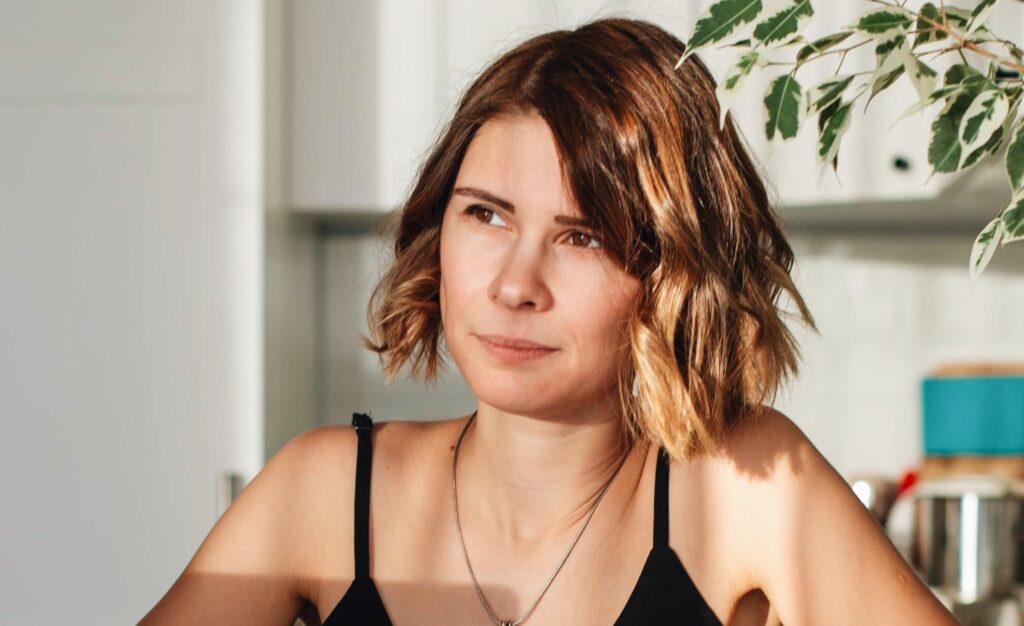

What Is Inpatient Anxiety Treatment?
Inpatient anxiety treatment is an intensive delivery method designed for people who are experiencing severe anxiety symptoms that drastically disrupt daily functioning. This treatment modality involves remaining at a specialized facility for a period of time, receiving comprehensive and structured care to address the signs of anxiety.
Inpatient treatment goals for anxiety include offering a stable, supportive setting that promotes healing and equips people with the tools and techniques they need to manage their anxiety effectively.
Our Inpatient Anxiety Treatment Center
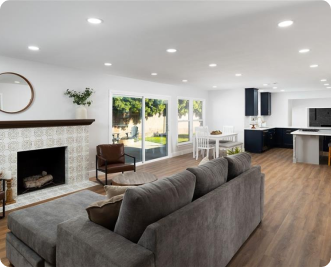
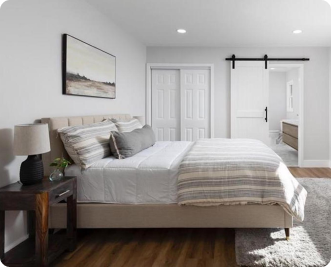

What Are Anxiety Treatment Centers Like?
Anxiety treatment centers are specialized facilities designed to help individuals who are grappling with any type of anxiety. These centers offer a nurturing and therapeutic setting, where the primary focus is on providing comprehensive care and support tailored to the unique needs of each individual.
Here’s what to expect when engaging with anxiety disorder treatment in an inpatient setting:
Anxiety treatment centers are designed to foster a sense of calm and safety. The environment is typically tranquil and soothing, with comfortable accommodations and spaces designed to promote relaxation and reflection.
Respecting the privacy of each individual is a cornerstone of inpatient anxiety centers. A confidential treatment experience creates a trusting and open atmosphere conducive to healing.
Daily life in anxiety treatment centers follows a highly structured schedule. This includes therapy sessions, group meetings, recreational activities, communal meals, and personal time. The structure is designed to provide a whole-body approach to recovery that balances treatments, self-care, and leisure.
Everyone has a different experience with anxiety. The most effective inpatient anxiety centers offer individualized treatment plans to meet the unique needs, goals, and challenges of each individual engaging with therapy.
Treatment for anxiety often includes a range of therapies like CBT (cognitive behavioral therapy), DBT (dialectical behavior therapy), and motivational therapies. These therapies are proven effective for managing anxiety and conducted by licensed and experienced mental health professionals.
Group therapy sessions are a core component of treatment, providing a platform for people to share experiences and learn from each other in a supportive group setting. Residents often form of a supportive community that can be instrumental in the ongoing recovery process.
Many inpatient anxiety treatment centers supplement science-backed therapies with holistic interventions like meditation, mindfulness, yoga, and exercise therapies.
Beyond treating the symptoms of anxiety, these centers often encourage self-discovery, personal growth, and the development of robust coping skills that are transposable to everyday life after inpatient anxiety treatment.
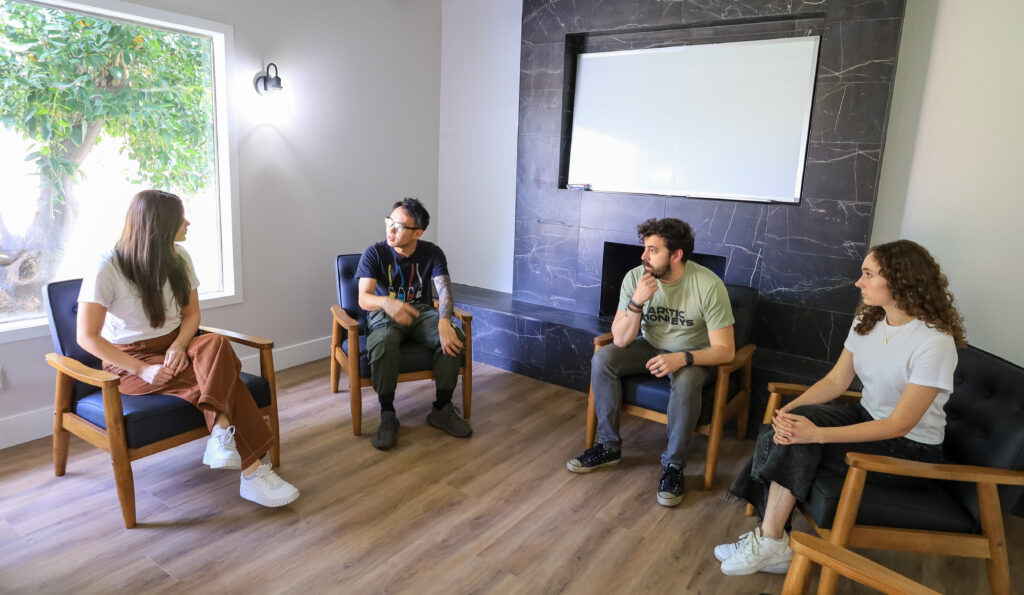

Who Can Anxiety Treatment Centers Help?
Anxiety treatment centers are equipped to help a wide range of people, from those with milder symptoms to those facing severe and debilitating anxiety disorders. Developing an awareness of who can benefit from residential mental health treatment can help people make more informed decisions about seeking treatment.
Inpatient anxiety treatment centers can help people manage various forms of anxiety, including:
GAD is characterized by excessive and persistent worry about different areas of life. This form of anxiety often manifests without a specific cause. Inpatient treatment centers ca
Individuals experiencing sudden, intense episodes of fear or panic attacks can find specialized anxiety attack treatment that focuses on understanding and managing these overwhelming feelings during inpatient treatment.
For those who feel significant distress in social situations, treatment centers can offer therapies focused on building social skills and confidence in interpersonal interactions.
Specific phobias, whether they are fear of heights, flying, or other specific triggers, can be addressed through targeted therapy approaches available at inpatient anxiety centers.
PTSD and associated anxiety can be treated through specialized programs that address the unique needs of trauma survivors.
Need more info on inpatient anxiety treatment?
Call our team today to learn whether an anxiety treatment center is the right choice for you or your loved one.
What to Expect at Inpatient Anxiety Treatment
Beyond specific anxiety disorders, treatment centers often offer programs for managing stress, which can be a significant contributor to or result of anxiety.
Many anxiety treatment centers are also equipped to handle co-occurring disorders – mental health conditions with co-occurring addictions – providing a comprehensive approach to treatment that is more effective that treating each condition in isolation.
These individuals might benefit most from inpatient treatment:
Here’s what to expect when engaging with anxiety disorder treatment in an inpatient setting:
Those who need a more structured and intensive treatment environment than provided by outpatient care.
Individuals who have tried outpatient therapy or medication without significant improvement may find the immersive environment of a treatment center more beneficial.
Treatment centers offer a community of individuals who understand the challenges of living with anxiety, providing a supportive and empathetic environment.

Anxiety Treatment Therapies
Cognitive Behavioral Therapy (CBT)
Dialectical Behavior Therapy (DBT)
Motivational Interviewing

How Do I Know if I Qualify for an Anxiety Treatment Center?
Determining whether you qualify for an anxiety treatment center involves evaluating the severity of your symptoms and how they impact your daily life.
Anxiety treatment centers are designed to assist individuals who experience significant challenges due to their anxiety, which cannot be adequately managed through outpatient treatments or self-care methods alone. Here are some indicators to consider:
If your anxiety symptoms are intense, persistent, and interfere significantly with your daily activities, work, or relationships, it might be time to consider an anxiety treatment center.
If you have tried outpatient therapy, medication, or other treatments without sufficient improvement, a more intensive treatment approach may be necessary.
Consider how your anxiety affects your quality of life. If it leads to isolation, prevents you from fulfilling responsibilities, or consistently triggers physical symptoms, specialized care may be beneficial.
If you are dealing with anxiety along with other mental health issues like depression or substance abuse, a treatment center that offers comprehensive care for co-occurring disorders can be particularly appropriate.
Does Insurance Cover Inpatient Anxiety Treatment?
If you’re like many others struggling with drug or alcohol addiction, the cost of treatment may be a barrier preventing you from getting help. To help alleviate cost concerns, Renaissance Recovery is proud to partner with a number of insurance providers who can provide up to 100% treatment coverage.
If you have concerns about missing work, or losing your insurance due to your stay, you don’t need to worry. If you have been at your job for at least 1 year, the Family and Medical Leave Act (FMLA) decrees that employers must provide pay & retain employers during a time of medical leave, and will have no access to health records of what kind of treatment you are undergoing.
To find out how much you’re covered for, call our friendly team today at 866.330.9449, or click Verify Insurance below.

Get Inpatient Anxiety Treatment at Renaissance Recovery
Do you or someone that you care about need help addressing anxiety that’s disrupting your life? If so, choose a mental health treatment program at Renaissance Recovery in Huntington Beach, California.
For those who need more support and structure in major anxiety disorder treatments, Connections is our sister program in Southern California. The beachside facility is small, welcoming, and inclusive. You will join a small group of peers to engage with anxiety treatments that may include:
- Medications
- Talk therapies like CBT or DBT
- Individual and group counseling
- Family therapy
- Holistic treatments
Call Renaissance today at 866.330.9449 and start addressing anxiety right away.
